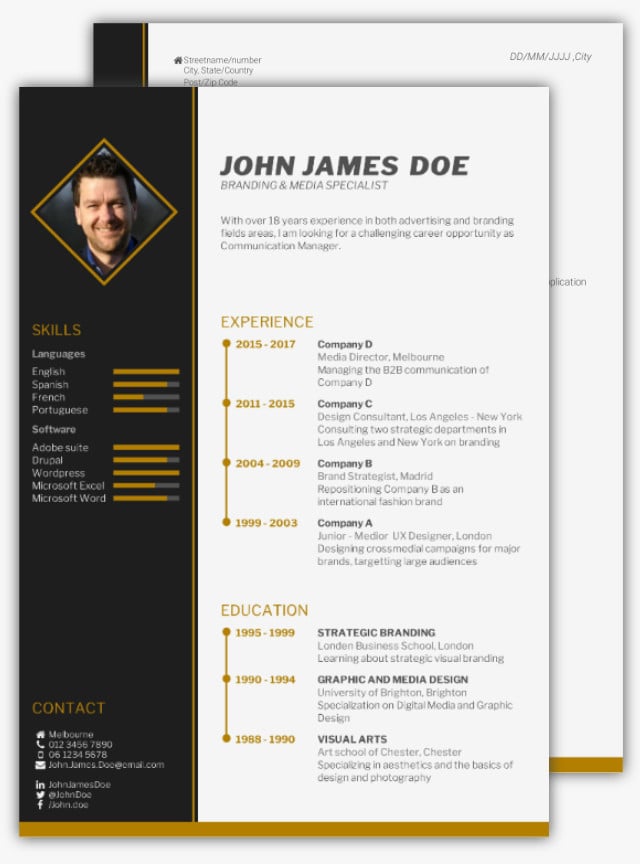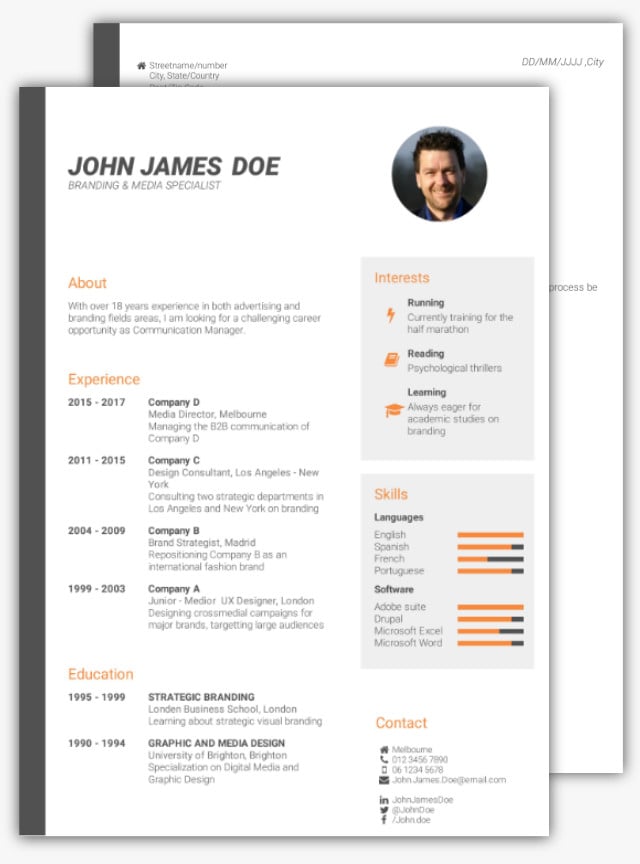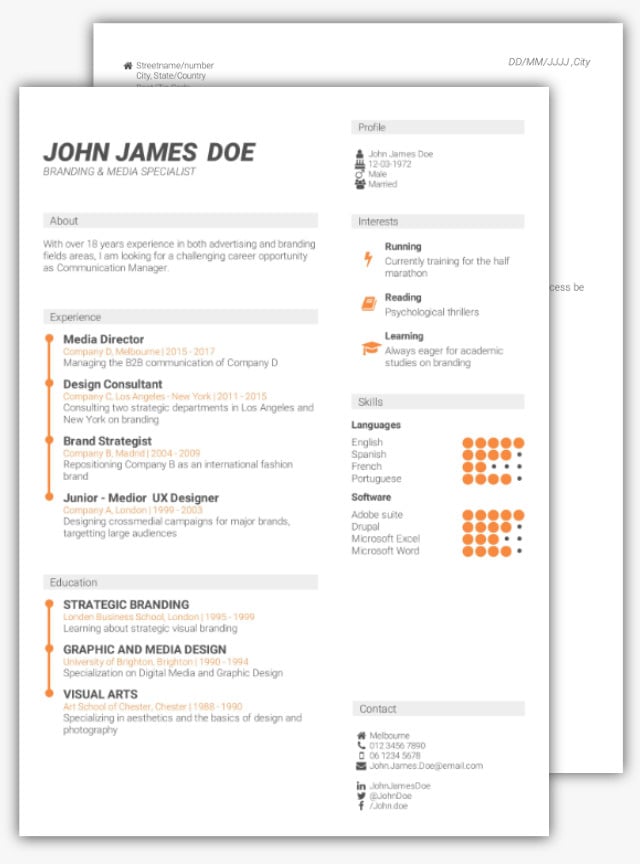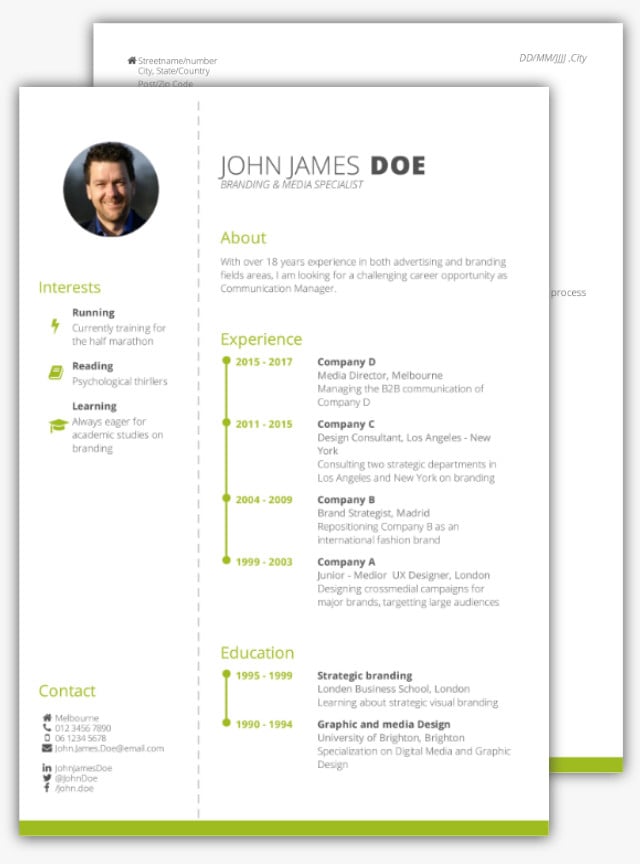How to write your work experience for maximum impact

Let's talk about the heart of your CV: your work experience.
Don’t get this right and you ensure a one-way ticket to the ’no pile’.
And yet people make the same FATAL mistake over and over again…
The lack of FOCUS.
It’s like people are afraid of missing that one little detail…
That one thing that could make a difference.
So they list every job responsibility they can think of… Thinking that the recruiter to read their whole CV.
They EXPECT that the recruiter will pick the relevant information.
WAKE UP!
Recruiters don’t read your CV. They scan.
You have 20 seconds to make a lasting impression.
Having long lists of too generic job descriptions add exactly ZERO value. It makes NO SENSE of writing your CV this way.
It is just a major waste of space.
You must understand… Companies hire to solve a specific problem.
A problem that has to be tackled with a specific solution.
Be that specific solution! Highlight only specific aspects you want the recruiter to remember you for.
Starting with your job title…
Choosing the right job title
Even simple things like choosing the right job title cause problems.
It’s like people think ‘Help, I need to write a CV. I must present myself the best way possible’.
Which is true. Just… don’t overdo it.
Generally speaking, there are two different camps.
- The people that write down simple, general job titles
- The ‘creative’ people that use fancy job titles that nobody knows.
Don’t do that.
Please don’t call yourself ‘Customer service representative’ when you are referring to a ‘salesperson’.
Or ‘Director of first impressions’ as a ‘receptionist’ function.
Yes, the recruiter might laugh when you call yourself a ‘Sandwich artist’.
I would laugh…
But after that, you’re done and the recruiter will turn to the next CV.
A fancy job title does NOT communicate clearly what the job is about.
However, using simple, general job titles isn’t the solution either.
The trick is to write your job title as precise as possible while using industry-standard terms.
Instead of the job title ‘marketing’, be precise and write ‘Email marketeer’.
What impression do you want to make?
How can you be the specific solution the recruiter is looking for?
For example.
If you did an intern; don’t write just intern.
Make it ‘Technology consultant intern’ or ‘Graphic design intern’.
Don’t waste this opportunity to give extra focus on your experience and suitability.
Use your job title in your favour and start aligning yourself with the function.

Learn how to write your CV for MAXIMUM IMPACT!
How to write a killer job description
So you want to stand out with your work experience? A Killer job description is all about being SPECIFIC.
That means NO MORE listings of every responsibility you can think of…
It is about impressing the recruiter with the RELEVANT ASPECTS.
Here's a psychological secret…
By highlighting only relevant aspects you will be INSTANTLY PERCEIVED as an EXPERT in your small field. Just by leaving out everything else!
Look closely at the job application.
What knowledge do you have to possess? What skills are required? What are the most important tasks of your desired job?
These are the aspects you want to show in your current work experience.
Answer these questions and writing your work experience descriptions actually becomes easy!
Seek hard results you achieved in previous functions.
These hard achievements will act as EVIDENCE, PROVING that you possess the right abilities.
Are you an ‘email marketeer’?
Think about ‘enlargement of the Email list with 20.000 addresses’, ‘improved conversion rates by 30%’ etc.
Addressed the achievement already in your CV summary? Just repeat it as this will put the achievement in the context of where you achieved it.
Highlighting them (again) will make sure that the recruiter will remember your most important selling points!
The best job description format
Write down your entire career path. State every job you can think of.
- Go through each position and write down the top 3 tasks/responsibilities/problems you solved in the position.
- Next, sum up what you learned in each job, what knowledge the job required and what knowledge possession the job proves.
- What relevant skills does the job prove? What skills did you develop in the job? List them all down.
Now look at your answers.
What are the common themes? What items are aligned with what the employer is looking for?
Are they also aligned with your personal brand?
Moreover, do you have any hard achievement in this job that supports these aspects?
Think about projects or duties, especially about ‘optimizing’, ‘improving’ or ‘building’ achievements.
Can you make a short, to the point sentence about the achievement?
E.g. "Increased online conversion with 25%" or "Finished 14 projects successfully as a project manager”).
Starting the sentence with an action word will make it compact and powerful.
Here’s how to write the job description down
Combine the best-aligned aspects into a short, detailed and impressive sentence using a hard achievement.
After that, go through your little brainstorm and pick the 3 items that are most beneficial to the next job.
The work description could look something like this:
Hard achievement sentence, matching aspect 1, matching aspect 2 and matching aspect 3.
For example
Increased online conversion with 25%, managed multiple project teams, was responsible for the email marketing and content strategy.
Consider bullet points if the description becomes longer than 2-3 sentences.
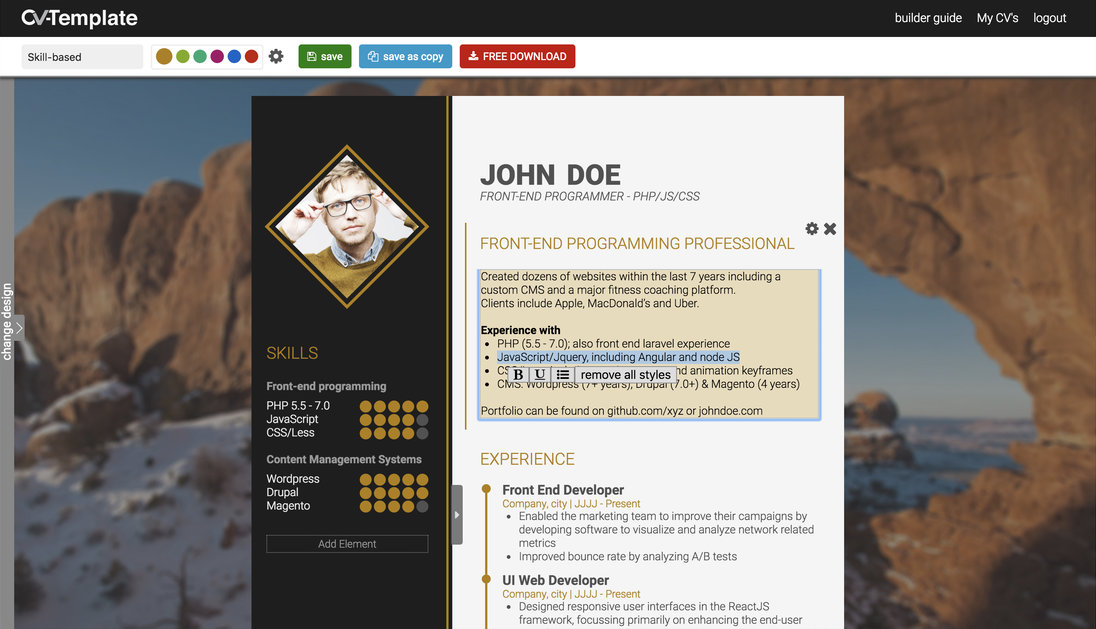
In my free CV Builder, you can make bullet points by selecting the sentence.
After selecting a text, a menu will appear where you can convert the sentence to a bullet point by selecting the list sign.

Learn how to write your CV for MAXIMUM IMPACT!
A great Work Experience description…
A great Work Experience description is about adding a lot of relevant details while keeping it as short as possible.
- Use (exact) numbers and percentages whenever possible.
- Let every word add value. Otherwise, delete it!
- Be detailed and industry-standard. Use the same terminology as the employer to pass the applicant tracking software.
- Make sure to put some keywords for the job and your personal brand! This will make your CV more scannable.
Watch out for…
Using a passive voice
Start the sentence with an action word to keep the description interesting and compact.
Write in an active voice!
Grammar mistakes
Keep the sentences as compact possible but make sure they are still grammatically correct.
This is probably the most common CV tip out there, but you would be surprised how many CVs still have grammar mistakes!
Always let someone proofread before applying.
Endless lists of responsibilities
Don’t write endless lists of random duties/responsibilities as the job description.
The recruiter doesn’t have to know everything about you, just keep the most relevant and impressive achievements/responsibilities.
Omitted items are ideal for the job interview. You will be an interesting candidate and show that you have a lot more to offer!
A messy CV layout
It is essential to have a clear, professional CV format. Especially within the work experience section.
The recruiter must be able to distinguish the company, job title, years and description within a split second.
Make sure to follow the exact same structure in each work experience item. Don’t make it messy by using different font sizes, colours or markup.
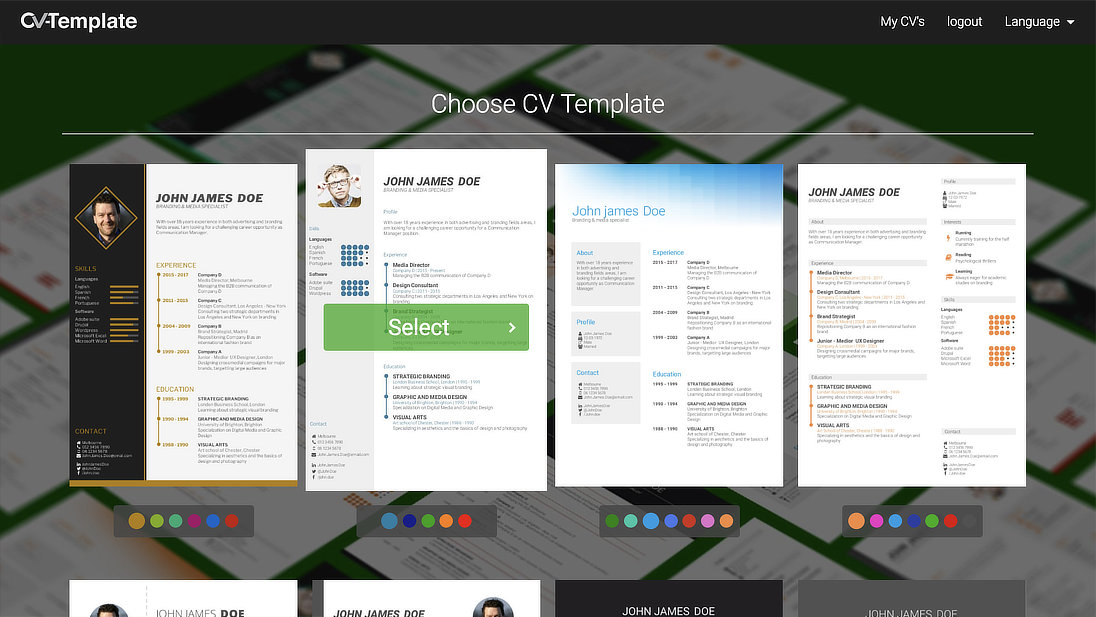
My free CV maker does handle the CV format for you so you can focus on the content. Just pick a design and you will have a great-looking CV in no time.
How about impressing the recruiter with an eye-catching timeline?
Learn more about the free CV builder
Help! I'm a recent graduate with limited work experience
Just graduated? Congratulations, and no worries. It is not expected to have a lot of work experience after graduation.
Instead, focus on relevant skills and experience you have developed within school projects.
Consider mentioning your thesis or biggest school projects (use the ‘projects’ element in my CV builder) and focus on the aspects that would interest the employer.
How to explain a gap in your CV
Empty spaces in your CV can be a challenge, especially if they occur multiple times.
However, they are not disastrous if explained correctly.
Recruiters pay attention to gaps in your CV so ignoring them and leave the reason to be guessed is not the way to handle this situation!
An easy trick is to state only the years and leave the months.
It is totally acceptable to write 2017-2018 while the actual dates are October 2017 - March 2018.
This alone will already close a gap of 6 months if you were laid off in April 2017 for example!
But even if this trick doesn’t work, always be honest!
You don’t have to go fully into detail but leaving it out will only bring (negative) question marks on your suitability.
It is perfectly normal to take a year off to travel around the world or to take care of a sick relative.
It is totally ok, but recruiters are keen to find out what happened in order to judge if this could be a problem in the future.
Your job is to take all those doubts away while being honest and prepared!
Moreover, show that you were still proactive in the meantime.
For example, tell the recruiter that you used the time off to take a course or did volunteer work.
Try to find something you did that will demonstrate that you are serious about your work and use this to set your CV apart.
"Travelled for a year to immerse in a different culture" makes perfect sense and explains the gap immediately.
And by the way, ’Immerse in a different culture' will make you instantly an interesting candidate!
Just add a work experience item in the CV builder and state here the reason for the large gap or write it within your cover letter.
You can easily hide all other experience fields in the CV builder by simply clicking on them and pressing the eye symbol (they will be hidden in the download).
Click here to choose your CV template

That is… if you know how to write your CV education effectively!



